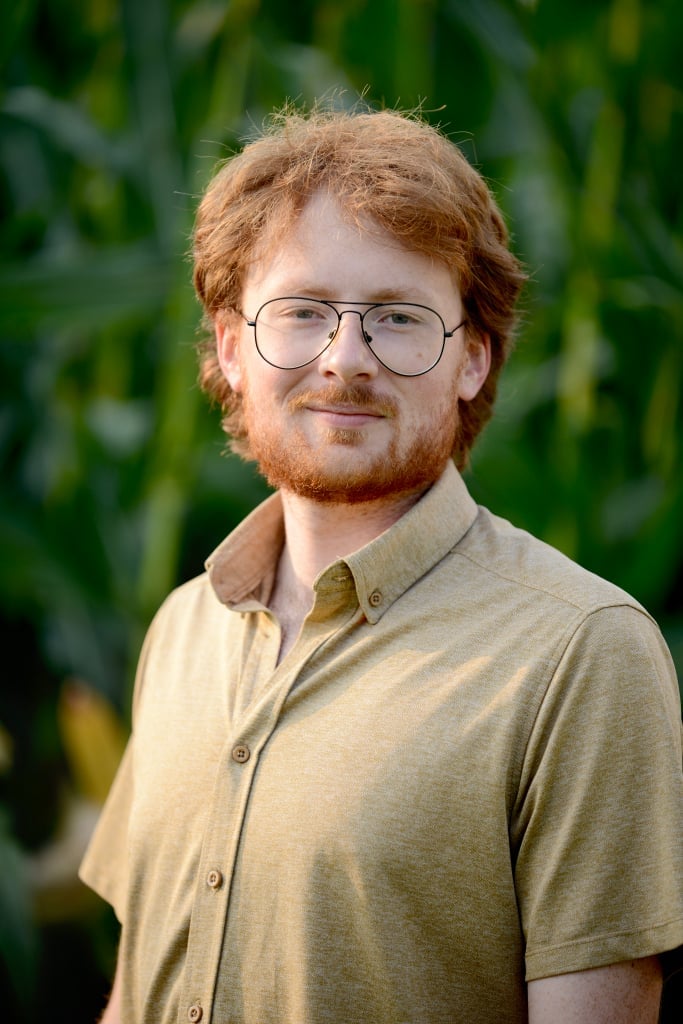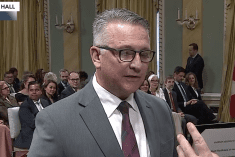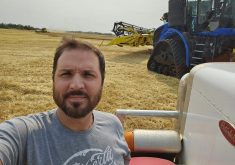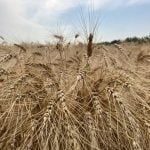Glacier FarmMedia—Candidates from the five main federal parties summarized their stances on agriculture in a debate hosted by the Canadian Federation of Agriculture Thursday.
Topics included tariffs, trading relationships, climate change, red tape reduction and the Canada-United States-Mexico Agreement (CUSMA) renegotiation.
Follow all our Federal Election 2025 coverage here
Kody Blois, Liberal MP for Kings-Hants, Nova Scotia, and current Minister of Agriculture and Agri-Food, focused on funding for federal initiatives to increase competitiveness and help producers. He emphasized Liberal funding of $200 million to domestic processing and $30 million to agri-marketing initiatives.
Read Also

Alberta harvest wrapping up: report
Harvest operations advanced to 96 per cent complete in Alberta as of Oct. 7, with only a few late-seeded cereal and canola fields remaining, according to the latest provincial crop report.
John Barlow, Conservative agriculture critic and MP for Foothills, Alberta, focused on reducing red tape and costs within the agriculture sector, including increasing transportation infrastructure and focusing on interswitching.
He said productivity should be a priority for the sector, something he argued Liberal climate-focused legislation has shorted.
The NDP’s focus was largely on fighting corporations and helping young farmers in a time of economic instability. Heather Ray, NDP candidate for Peterborough, Ontario, emphasized the importance of small operations and said many of the benefits in Canadian agriculture are reaped by corporate farms.
She also spoke to the importance of supporting farmers through climate change.
Maria Rodriguez, Green Party candidate for Cardigan, Prince Edward Island, said the Green party will focus on strengthening domestic markets and investing in scientific initiatives.
Ray and Rodriguez both proposed the idea of redirecting money from the oil and gas sector into research and development.
Yves Perron, Bloc Québécois agriculture critic and MP for Berthier-Maskinongé, Québec, emphasized the importance of protecting supply management. He also repeated the notion several times that farmers must not bear the brunt of climate change and the government must help support them.
Candidates generally agreed on the need for market diversification, particularly in Europe and the Indo-Pacific, as well as reduction of internal trade barriers.
The debate began with two-minute opening remarks.
Rodriguez spoke first. She said trade is a top priority for her party, and the tariff situation has “forced us to look inward” and agriculture must be central to trade discussions. She said the centrepiece of the Green plan will focus on strengthening our domestic market and internal trade.
Barlow said Canadian agriculture is “at a crossroads,” and can go the direction of neglect and limited trade opportunities a path that will see it as an “economic engine.”
“You must have a competitive tax and regulatory regime. You must have access to markets, you must have a reliable supply chain. You must have access to labour.” He says the Liberal government has “failed on almost all of these metrics.”
Perron said Food resilience and industry development are crucial and supply management must be protected. He said the government must share the responsibility of environmental protection with farmers. “We cannot put all of the responsibility on your shoulders.”
Blois said Carney and Liberals have the “best and strongest plan to drive agriculture forward.” he mentions the Sustainable CAP and risk management programs. He says now is the time to work with stakeholders to find new markets.
Ray began by speaking about her own experience growing up on a cattle farm in Ontario. She says the NDP will “always stand with farmers” and will provide a climate plan that works for farmers and crack down on the “corporate profiteering” she says Liberals and Conservatives have “allowed to flourish.”
Watch the whole debate on YouTube
Questions included:
If elected to form the next government, what are your top two or three priorities to promote Canadian agriculture and agri-food, both at home and abroad?
Perron says Canada needs the Bloc Québécois to protect supply management.
Blois says Liberal government is already reducing red tape at CFIA and will continue to if elected. Barlow argues Liberals have had nine years to enact these changes.
Blois says he sees “tremendous opportunity in the Indo-Pacific” as a new market.
Blois says Liberal plan is to create a $200 million domestic processing fund and direct $30 million to agri-marketing initiatives.
Ray: “one-farmer-fits-all” policies will not work for all farmers (especially young and new farmers) among skyrocketing input costs.
Perron: increasing foreign workers to 40 per cent and being aware of climate change on a global scale. Refutes Barlow, saying “pipelines have nothing to do with agriculture.” Repeats farmers must not bear the burden of climate change: “if we don’t support our farmers, they will no longer be there.”
Barlow says Canada is no longer a respected trading partner abroad and we must focus on interswitching and building pipelines
Barlow: developing markets at home by eliminating interprovincial trade barriers. “The most lucrative free trade agreement is the one that we don’t have.” Also says it is important to increase consumer trust in the sector.
Rodriguez: diversifying trade partners and industry. Says incentives have not been equally effective for all sectors.
To what extent should the government prioritize red tape reduction and regulatory reform in the agricultural sector in light of recent trade tensions?
Perron says the role of the state is essential and some restrictions are still necessary. He agrees on the need for partnerships with other jurisdictions.
Barlow says Conservative Party promises responses on applications within 60 days. He encourages Canada to join other countries like Brazil and New Zealand in a sustainable growth partnership.
















